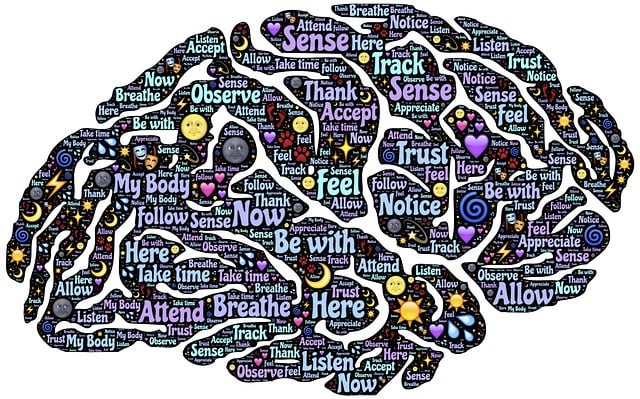Englewood Bariatric Evaluations Therapy offers a unique, holistic approach to weight loss and mental health, emphasizing Resilience, Flexibility, and Mindfulness (RFM). This includes building coping skills, community support networks, and tailored interventions using RFM Analysis. By combining mindfulness meditation, physical activity, and crisis intervention guidance, the therapy program empowers individuals to manage stress, anxiety, and setbacks while promoting long-term physical and emotional well-being. This comprehensive strategy sets Englewood Bariatric Evaluations Therapy apart from traditional programs, focusing not just on physical changes but also on psychological and emotional aspects for sustainable lifestyle improvements.
“Discover how resilience, a key factor in Englewood Bariatric Evaluations’ approach, empowers individuals on their weight management journey. Explore RFM (Risk, Frequency, and Motivation) analysis as a dynamic tool for personalized therapy, enhancing patient engagement. Learn practical exercises to fortify mental and emotional resilience, fostering positive lifestyle changes. Understand the integral role of RFM in bariatric care, resulting in improved outcomes and long-term success.”
- Understanding Resilience: The Cornerstone of Englewood Bariatric Evaluations
- RFM Analysis: A Powerful Tool for Personalized Therapy
- Practical Exercises to Build Mental and Emotional Resilience
- Integrating RFM into Bariatric Care: Enhancing Patient Outcomes
Understanding Resilience: The Cornerstone of Englewood Bariatric Evaluations

Resilience is a key concept in the field of bariatric evaluations and therapy, particularly in the context of Englewood Bariatric Evaluations. Understanding resilience as a cornerstone of this process allows healthcare professionals to address not just the physical aspects of obesity but also the mental and emotional challenges that often accompany it. This holistic approach recognizes that effective treatment involves more than just weight loss; it encompasses building coping skills and fostering a sense of empowerment to navigate life’s difficulties.
Englewood Bariatric Evaluations incorporates resilience-building exercises into their therapy programs, recognizing their importance in long-term success. By helping individuals develop mental health policy analysis and advocacy skills, they empower them to advocate for their own care and make informed decisions about their health. Additionally, community outreach program implementations support participants in building a supportive network, which is vital for developing coping skills and enhancing overall resilience.
RFM Analysis: A Powerful Tool for Personalized Therapy

RFM Analysis stands as a robust tool within the realm of personalized therapy, particularly relevant in areas like Englewood Bariatric Evaluations Therapy. This method delves into an individual’s recent behaviors, frequency of engagement with support services, and emotional connections to gain profound insights. By understanding these factors, therapists can tailor interventions for enhanced effectiveness.
In the context of Public Awareness Campaigns Development and Crisis Intervention Guidance, RFM Analysis offers valuable data. It helps in identifying individuals at risk or those who may benefit from Trauma Support Services. Through this analysis, professionals can proactively reach out to those in need, ensuring a more responsive and targeted approach to mental health care.
Practical Exercises to Build Mental and Emotional Resilience

Building mental and emotional resilience is a crucial aspect of overall well-being, especially for individuals navigating weight loss journeys or managing medical conditions like those who seek Englewood Bariatric Evaluations Therapy. Practical exercises play a significant role in fostering this resilience. One effective strategy is incorporating mindfulness meditation into daily routines. This ancient practice helps individuals focus on the present moment, reducing anxiety and stress. By cultivating awareness of thoughts and emotions without judgment, one can gain better control over their reactions to challenging situations, which is particularly beneficial during times of crisis.
Additionally, engaging in regular physical activity, tailored to individual needs, acts as a powerful tool for resilience-building. The release of endorphins during exercise improves mood and reduces stress hormones. Activities such as walking, swimming, or even simple body movements can contribute to developing inner strength. Crisis Intervention Guidance techniques can be integrated into these practices, focusing on breathing exercises and positive affirmations to reinforce mental fortitude during difficult periods. This holistic approach not only enhances physical health but also equips individuals with the tools to navigate life’s challenges with greater ease.
Integrating RFM into Bariatric Care: Enhancing Patient Outcomes

Integrating RFM (Resilience, Flexibility, and Mindfulness) into bariatric care offers a holistic approach to enhancing patient outcomes. Englewood Bariatric Evaluations Therapy recognizes that successful weight loss goes beyond physical changes; it requires addressing psychological and emotional aspects integral to long-term success. RFM exercises target key areas such as resilience – the ability to bounce back from setbacks, flexibility in adapting to changing circumstances, and mindfulness to stay present and focused.
By incorporating these practices, patients are equipped with powerful tools for Depression Prevention and cultivating Self-Care Practices. The focus on emotional regulation helps individuals manage stress, anxiety, and cravings more effectively. This integrated approach not only supports physical weight loss but also fosters a sense of balance and well-being, ultimately contributing to improved patient outcomes and a more sustainable journey towards a healthier lifestyle.
Englewood Bariatric Evaluations therapy emphasizes the importance of resilience as a cornerstone for successful patient outcomes. By combining RFM analysis with practical exercises, healthcare professionals can offer personalized and comprehensive care. Integrating these strategies not only enhances mental and emotional well-being but also fosters adaptability to challenges, ensuring patients are equipped to navigate life’s complexities. This tailored approach is pivotal in the bariatric care journey, promoting long-term success and improved quality of life for individuals seeking weight management solutions.










